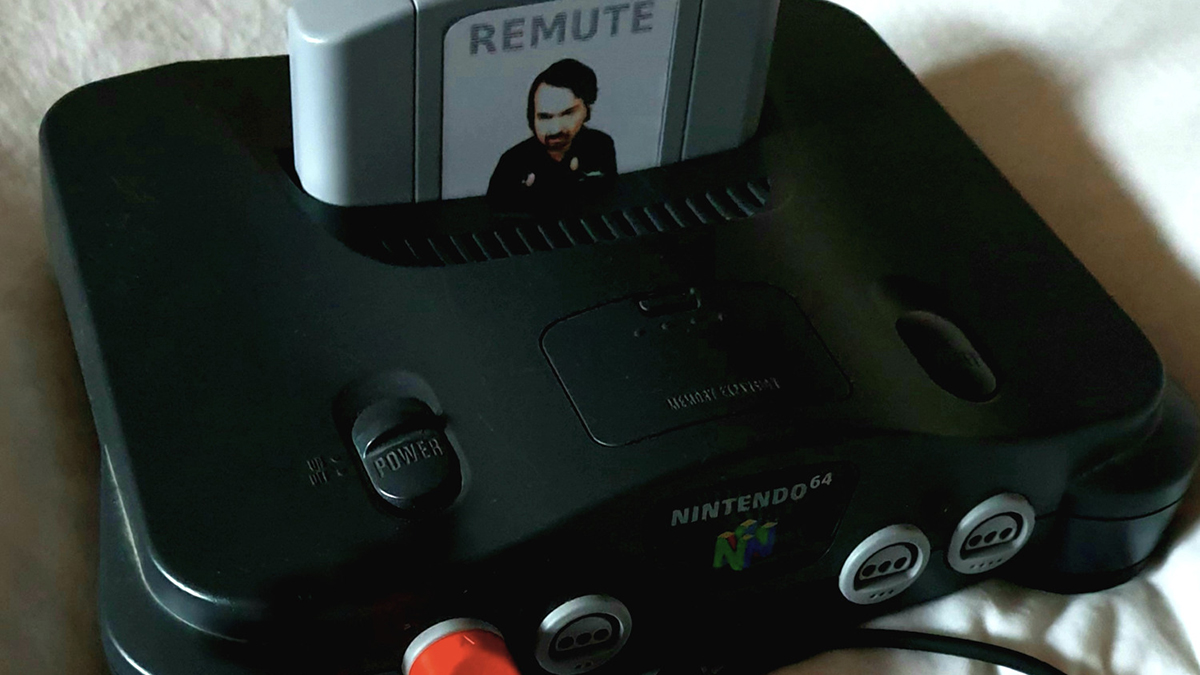Remute releases new album for the Nintendo N64, turning the ‘90s console into a synth/sampler hybrid
Former Sega Genesis and Nintendo Game Boy composer upgrades to 64-bit

Having previously released albums for the Sega Mega Drive and Nintendo Game Boy, artist Remute has moved to a later generation of video game system and created a record that comes supplied on a Nintendo N64 cartridge.
Remute says that R64, as it’s known, is his most “diverse and playful” album yet. It features 15 songs and promises both electro-pop in the vein of Yello, Kraftwerk and Yellow Magic Orchestra, and more intense ‘90s-style techno and house excursions.
To confirm, all sounds you hear on the album are generated by the the N64 - Remute says that it effectively turns your console into a “synthesizer/sampler hybrid” - and using just 8MB of storage space.
For the sound engine and player GUI, Remute collaborated with N64 developer Rasky, and there are also some “trippy 3D visuals” for you to experience.
R64 is supplied region-free, which means it should play on all N64 models.
You can pre-order the album now on Remute’s Bandcamp page. It’s priced at €40 and will be released on 25 March.
There’s also the €50 Plus edition, which comes with an additional blue 7-inch vinyl record that contains two album songs and an exclusive track.
Want all the hottest music and gear news, reviews, deals, features and more, direct to your inbox? Sign up here.
R64 is the first in a new trilogy of Remute albums that will see the artist release LPs for the Game Boy Advance (Unity) and Sega Dreamcast (Generations). These will follow later in 2022.



I’m the Deputy Editor of MusicRadar, having worked on the site since its launch in 2007. I previously spent eight years working on our sister magazine, Computer Music. I’ve been playing the piano, gigging in bands and failing to finish tracks at home for more than 30 years, 24 of which I’ve also spent writing about music and the ever-changing technology used to make it.